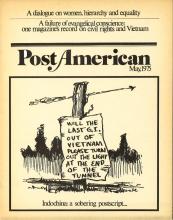The modern or New Evangelicalism is commonly believed to have evolved principally out of Protestant fundamentalism during the 1940s. New organizations arose, such as the National Association of Evangelicals and Youth for Christ, a new phenomenon appeared in evangelism in the person of Billy Graham, and a number of conservative young scholars appeared to contend for the historic Christian faith and to challenge the social myopia of traditional fundamentalism. One of these bright young intellectuals was Carl F. H. Henry, whose explosive book The Uneasy Conscience of Modern Fundamentalism (1947) chastened fundamentalism for lacking “social passion” and also dared to characterize fundamentalism as “the modern priest and Levite, by-passing suffering humanity.” Carl Henry’s charge that fundamentalism had failed to apply Christian teachings to “the cardinal social issues of the times” struck a responsive chord among thoughtful coreligionists, and earned him recognition as a “young prophet” of evangelicalism.
At the same time that Henry spoke, a second pioneer scholar of the New Evangelicalism, Harold J. Ockenga, similarly deplored the “ethical indifferentism” of traditional fundamentalism, and challenged his fellow believers to a biblically-sensitized social concern: If the Bible-believing Christian is on the wrong side of social problems such as war, race, class, labor, liquor, irnperialism, etc., it is time to get over the fence to the right side. The church needs a progressive fundamentalism with a social message.
Dr. Ockenga later reaffirmed this care for social ethics when he stated: "My personal concern as the originator of the New Evangelicalism has been to stir the interest of evangelical Christianity in meeting the societal problems through the context of Biblical Christianity."
Read the Full Article

